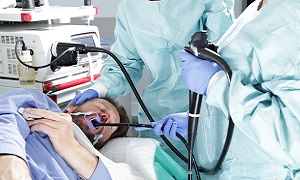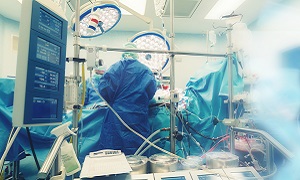Best Oncologists for Stomach Cancer Treatment in India
Best Stomach Cancer Treatment Hospitals in India
- City: Bengaluru, India
Hospital Highlights:
- Fortis Hospital Bannerghatta, Bengaluru was established in 2006.
- The hospital is a 276 bedded multi-specialty tertiary care facility.
- The hospital specializes in cutting-edge medical technology and dedicated patient care services.
- The hospital is equipped with state-of-the-art technologies like trans-radial angioplasty, trans-abdominal cardiac surgery, and computerized TKR navigation surgery.
- The hospital provides specialty medical services in cardiology, cardiac surgery, orthopedics, neurology, neuro-surgery, GI, and Minimal Access Surgery (MAS).
- City: Chennai, India
Hospital Highlights:
- Fortis Malar was established in 1992 and was formerly known as Malar Hospital.
- The hospital specializes in cutting-edge medical technology and dedicated patient care services.
- The hospital is multi-specialty, tertiary care facility with 180 beds.
- The hospital offers comprehensive medical care in specialties such as cardiology, cardio-thoracic surgery, neurology, neurosurgery, orthopedics, nephrology, gynecology, gastroenterology, urology, pediatrics, and diabetes.
- City: New Delhi, India
Hospital Highlights:
- Established in 1996, Pushpawati Singhania Research Institute is one of the top hospitals in the NCR region, as well as one of the top facilities in India for gastroenterology. The hospital is one of South Asia’s first institutes in medical and surgical treatment for diseases related to digestion.
- The hospital is equipped with state-of-the art facilities coupled with the latest equipment as well as renowned consultants from various parts of India as well as other parts of the world.
- City: New Delhi, India
Hospital Highlights:
- State-of-the-art technology and devoted healthcare professionals have been brought together under one roof at Venkateshwar Hospital to provide genuine medical care. The hospital’s professionals work together as a team to deliver the best possible treatment to their patients, using the most sophisticated equipment and information technology.
- Venkateshwar Hospital’s mission is to attain global excellence in healthcare by employing evidence-based, ethical clinical practices and cutting-edge technology by a team of highly skilled experts.
- City: New Delhi, India
Hospital Highlights:
- Sir Ganga Ram Hospital, New Delhi is known to provide the latest medical procedures with the latest technology in all of its units.
- The hospital has a team of reputed doctors, nurses, and healthcare professionals that ensure that patients receive quality care at affordable costs.
- Staffed with a team of highly qualified doctors, dedicated nurses, and paramedical and non-medical staff, the hospital aims to lead in healthcare delivery, medical education, training, and research.
- As per the vision of the founder, the hospital also provides free treatment to the economically weaker sections of society.
- Sir Ganga Ram Hospital also provides training to young doctors under the Diplomate in National Board(DNB) program. The DNB program at the hospital was started in 1984 and it is known for currently running the maximum number of DNB specialties in the country. It also has the distinction of having the first bone bank in India.
- City: Kerala, India
Hospital Highlights:
- Established in 2019, Apollo Adlux Hospital is the first Apollo Hospital in Kerala and the 73rd hospital owned by Apollo Group in India. With the state’s most advanced, comprehensive healthcare infrastructure and cutting-edge technologies, Apollo Adlux Hospital stands as an example of medical excellence in Kerala.
- With over 34 multi-specialty departments, the hospital believes in providing the best quality treatment to its patients at affordable rates, ensuring comfort at their difficult times.
- The 300-bed hospital is managed by a team of highly qualified and experienced experts who delivers exceptional hospitality to their patients and treats them with great compassion.
- With its affiliation with the Apollo Hospitals Group, the hospital aims in providing patients with top-notch healthcare services while also serving communities in Kerala.
- The hospital has good railway and road connections, and is conveniently close to Cochin International Airport.
- City: Gurugram, India
Hospital Highlights:
- Situated near DLF Cyber City, Gurugram, Narayana Superspecialty Hospital is one of the top medical facilities in the Delhi NCR region, catering to the needs of the people. Known for its commitment to quality medical care and patient service, the hospital is a state-of-the-art facility with planned and well-equipped sections, which includes a spacious OPD area as well as comfortable patient rooms.
- It is the closest super-specialty hospital from Indira Gandhi International Airport towards Gurugram, and also the nearest super specialty hospital from DLF Cyber City. It is also close to major residential areas in Gurugram.
- It is part of the renowned Narayana Health Group. Established in 2000, by Dr. Devi Shetty, a renowned cardiac surgeon, it has grown to be one fo India’s leading healthcare groups.
- City: Noida, India
Hospital Highlights:
- Fortis Hospital, Noida, stands as one of the oldest and most trusted healthcare institutions in the region, setting a benchmark for comprehensive medical care.
- As the second mega hub hospital in the Fortis Healthcare Group, Fortis Hospital, Noida, upholds a legacy of trust among more than 1.2 million patients. By integrating top-tier professionals with cutting-edge technology, the hospital delivers superior treatment across various medical disciplines.
- Specializing in advanced Neurosciences, Orthopedics, Kidney and Liver Transplant Programmes, Fortis Hospital, Noida has successfully performed over 1,500 transplants, solidifying its reputation as a leader in specialized medical interventions.
Stomach Cancer
Stomach Cancer is the growth of cancerous cells within the lining of your stomach. There is a possibility that these calls might grow into a tumor. Also known as gastric cancer, this type of cancer grows slowly over several years, and is difficult to diagnose, as patients don’t show symptoms in the early stages.
Sometimes, it even goes undiagnosed until it spreads to other parts of the body, making it more difficult to treat.
Symptoms
There are generally various signs and symptoms of stomach cancer, and some of them include:
- Feeling bloated after a meal
- Difficulty swallowing
- Feeling full after eating small amounts of food
- Nausea
- Stomach pain
- Heartburn
- Vomiting
- Indigestion
- Unintentional weight loss
Causes & risk factors
Modern science is still researching what exactly makes cancer cells grow in the stomach. Few things are known to increase your risk for the disease. One of them is infection with bacteria which causes ulcers. Inflammation in your gut, which is known as gastritis can also increase the risk. Pernicious anemia, which is a type of long-lasting anemia, and certain growths in your stomach known as polyps are also known to make you more likely to get cancer.
Few other factors that might increase the risk of stomach cancer include:
- Smoking
- A diet high in smoked, pickled, or salty foods
- Being obese or overweight or obese
- Type- A blood
- Working in coal, timber, metal, or rubber industries
- Epstein-Barr virus infection
- Stomach surgery for an ulcer
- Exposure to asbestos
- Certain types of genes
Stages of Stomach Cancer:
Stage 1: Cancer is present in the inner lining of the stomach.
Stage 2: Cancer has spread into the deeper layers of stomach & nearby lymph nodes.
Stage 3: Cancer has spread to all the layers in the stomach as well as to the nearby organs like spleen or colon.
Stage 4: Cancer has spread far and wide to organs like the liver, lungs, or brain.
Diagnosis
There are several tests and procedures which are used in order to diagnose stomach cancer.
Upper endoscopy
Biopsy
Imaging tests
Your doctor will need to determine the stage of your stomach cancer before he/she can decide which treatment option is best for you. Tests and procedures which are used to determine the stage of cancer include:
Blood tests
Imaging tests
Imaging tests generally include positron emission tomography (PET) and CT scans.
Exploratory surgery
Your doctor may also need to perform surgery to check if cancer has spread beyond your stomach, within your chest, or your abdomen. Exploratory surgery is usually done laparoscopically. This means the surgeon will be making several small incisions in your abdomen and next insert a special camera that transmits images to a monitor in the operating room.
Depending on your situation, other staging tests might be used as well.
The information from these procedures might be used by your doctor to assign a stage to your cancer, which ranges from 0 to IV. The lowest stage indicates that the cancer is quite small and has affected only the stomach’s inner layers. However, by stage IV, the cancer is considered to be quite advanced and may have spread to other areas of the body.
Treatment
Surgery
The goal of surgery is removing all of cancer, as well as some of the healthy tissue around it.
Operations that are used for treating stomach cancer can include:
Removing early-stage tumors from the lining of the stomach
Subtotal gastrectomy
Total gastrectomy
Total gastrectomy involves the removal of the entire stomach as well as some surrounding tissue. After this, the esophagus is connected directly to your small intestine so that food is able to move through your digestive system. Total gastrectomy is generally meant for stomach cancers affecting the body of the stomach as well as those located in the gastroesophageal junction.
Removing lymph nodes to look for cancer
Surgery to relieve signs and symptoms
Radiation Therapy

Radiation therapy is a form of cancer treatment, that uses high-powered beams of energy, such as protons and X-rays to kill cancer cells. In this method, you lie on a table, over which a machine moves around you, sending the energy beams.
Sometimes, radiation therapy might be used before surgery as well, in order to shrink cancer, so that it can be removed more easily.
Radiation therapy is also used after surgery to kill any cancer cells that might be remaining. It is also often combined with chemotherapy.
Chemotherapy
Chemotherapy is a drug treatment that makes use of chemicals to kill cancer cells. The drugs travel throughout the body and kill the cancer cells that might have spread through the stomach.
This treatment might be given before surgery as well, to help shrink cancer so that it might be removed more easily. Chemotherapy is also used after surgery to kill any cancer cells that might be remaining in the body. Sometimes it might also be combined with radiation therapy.
In people with advanced stomach cancer, it might also be used in combination with targeted drug therapy.





















